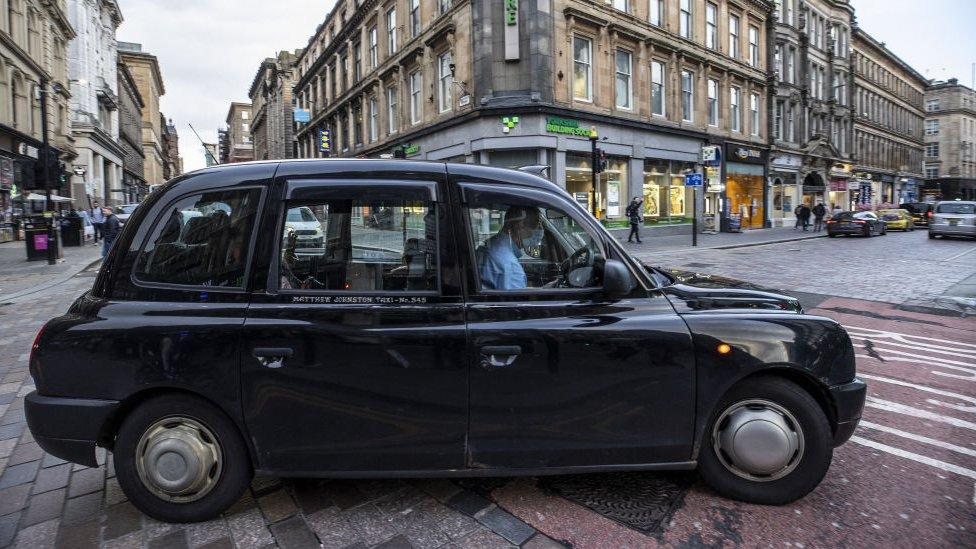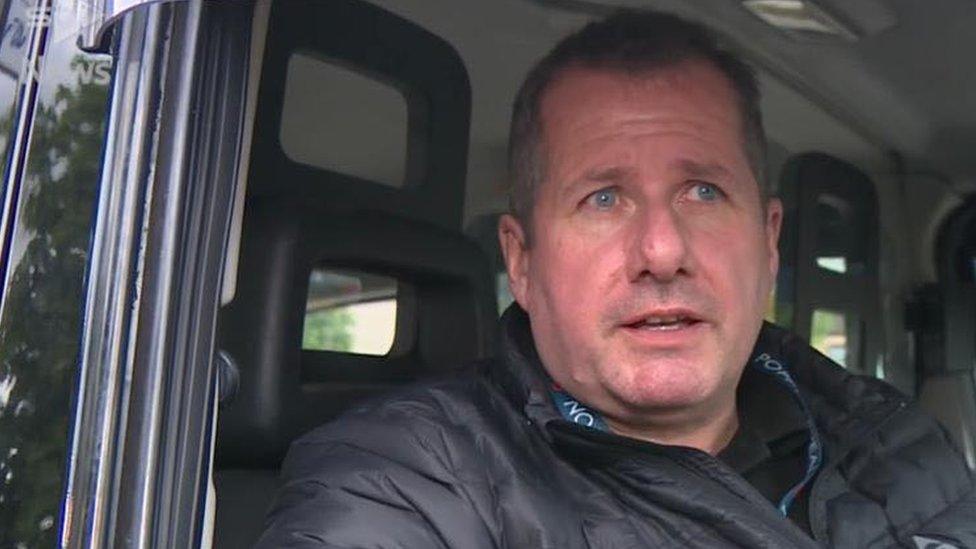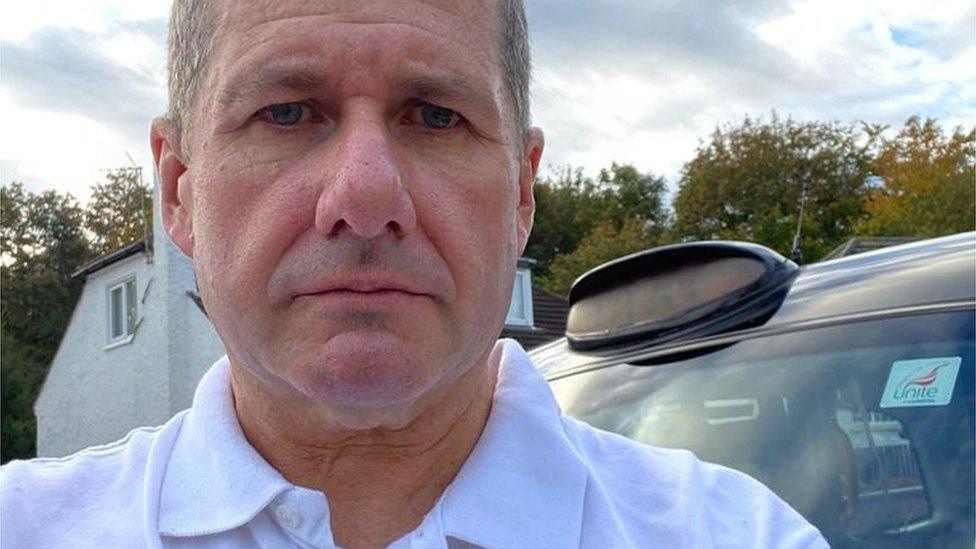Some taxis to get extra time for Glasgow low emission zone
- Published

Taxi drivers say they should be given more time to comply with the rules after two years of Covid
Some taxis in Glasgow could receive extra time to comply with Glasgow's Low Emission Zone (LEZ).
The zone, which covers a large part of the city, will apply from 1 June next year in a bid to encourage the uptake of less polluting vehicles.
Many taxis are currently not LEZ-compliant and will need to be replaced or retro-fitted with new engines.
The council has backed a new proposal to give taxis an extra year to prepare if they are unable to access grants.
In February this year, the Scottish government opened grant schemes to help drivers upgrade or change their vehicles.
The proposed exemption will apply to those who do not have access to a grant-funded vehicle.
Aberdeen, Dundee and Edinburgh are also introducing LEZs, but they will not be enforced until 2024.
'Biggest threat'
Taxi drivers have previously said that a new zero emission cab costs in excess of £60,000 and there are very few second-hand taxis available that would be capable of retrofitting to Euro 6 standard required by the LEZ.
Simon Mitchell told the BBC he has two cabs which are Euro 4s and too old to retrofit to the required standard.
Mr Mitchell said: "We're not saying we shouldn't have a LEZ, we're saying give us a chance to get back on our feet after Covid. Give us a chance, extend it. To be honest a year isn't enough but it's better than nothing, ideally we'd want a couple of years."
He said he believed councillors did not understand the taxi trade and felt drivers were "collateral damage".

Calum Anderson believes many drivers will walk away from the trade as they don't see a future in the job.
The Unite union's Glasgow Cab Section chairman, Calum Anderson, said an extension was needed for all drivers until 2024.
"What's happening is they are essentially going to turn the taxi trade into nothing more than a novelty business in the city," he said.
"The fact is every other city in Scotland was given until 2024 before they start enforcing it," said Mr Anderson.
"This is the biggest threat to the taxi trade ever. I've been in the trade 35 years and never seen it so bad."
Councillor Angus Millar, Glasgow's transport and climate convener, said that the temporary exemption proposal for taxi drivers was a "practical and proportionate" way to support the taxi sector ahead of the LEZ enforcement.
"This considered approach seeks to balance our absolute determination to tackle longstanding, illegal levels of air pollution in our city centre as quickly as we can, with our desire to mitigate as far as possible the cost to operators to achieve compliance," he said.
Mr Millar said the proposal still needed the backing of a further council committee but it would grant operators additional time to prepare where they did not have the option of grant funding support.
Related topics
- Published8 March 2022
